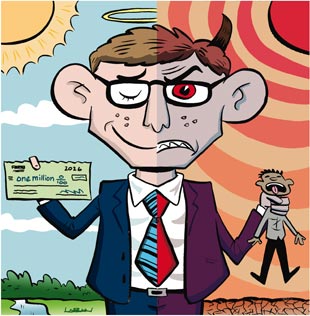 Entry of your choice.
Entry of your choice.Out of the three dystopian books that I read, I thought Animal Farm was, by far, the best one. It was easier to understand see Communism, which works in theory, becoming unrealistic when put to practice. It was also easier to understand the concept of a utopian society steadily turning into a dystopian one. This was because the animals were parallel to the human characteristics they possessed: the pigs were the leaders of Animal Farm with Napoleon being the dictator, the horse was the obedient followers of the pig, and the goat was the stubborn one.
Another aspect I liked about the book was the fact that the animals could talk to people. This, obviously cannot happen in reality, but I enjoy books that challenge the reader's imagination, which is why I particularly enjoy fantasy books. While Animal Farm is not a fantasy book, it was certainly the most imaginative and creative out of Fahrenheit 451, 1984, and Animal Farm.
Also, while reading this novel, I had the most emotional reactions to it. For example, while I was reading Fahrenheit 451, I was absolutely bored and couldn't wait to be done with it. Animal Farm, however, kept me riveted until the last scene in the book, and up until that moment my mind was racing with thoughts and ideas about how ignorant the other animals were in not noticing how the pigs set themselves above others, or as they put it, "...more equal than other animals."







